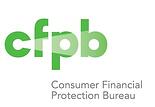Subscribe to the Nsight Blog
All Topics
Risk & Compliance
Product Insight
Banks
Lending Compliance
Credit Unions
Risk Management
Fair Lending
Nfairlending
Cluster: Risk Management
Compliance
Lending Compliance Management
Integrated Risk Blog
Nrisk
Regulatory Compliance Management
News & Updates
HMDA
Risk
Mortgage Lenders
Vendor Management
Ncomply
CRA
Business Resiliency
Lending Compliance Blog
Vendor
CFPB
Ncontinuity
Third-Party Vendor Management
Business Continuity
Cybersecurity
Fintech
NVendor
Strategic Planning
Ncyber
Ntransmittal
Regulatory Updates
Audits & Findings
Company Culture
OCC
Audit
Nverify
Regulatory Compliance
Exams
FDIC
Compliance Management
Findings
NCUA
Nfindings
Contract Management
Employee Intranet
Contract
FRB
Business Continuity Management
FFIEC
Findings Management
Ncontracts manager
Third-Party Vendors
Vendor Risk
Enterprise Risk Management
Wealth Management
ABA Bank
Access Control
Artificial Intelligence
Audit Findings
Board Portal
Call Report
Cybersecurity Assessment
Digital Tansformation
Due Diligence
Efficiency
Employee Engagement
Exam findings
FIEC
Governance and Risk Management
Inc. 5000
Internal Audit Management
Nboardportal
Vendor Risk Management
Verify




